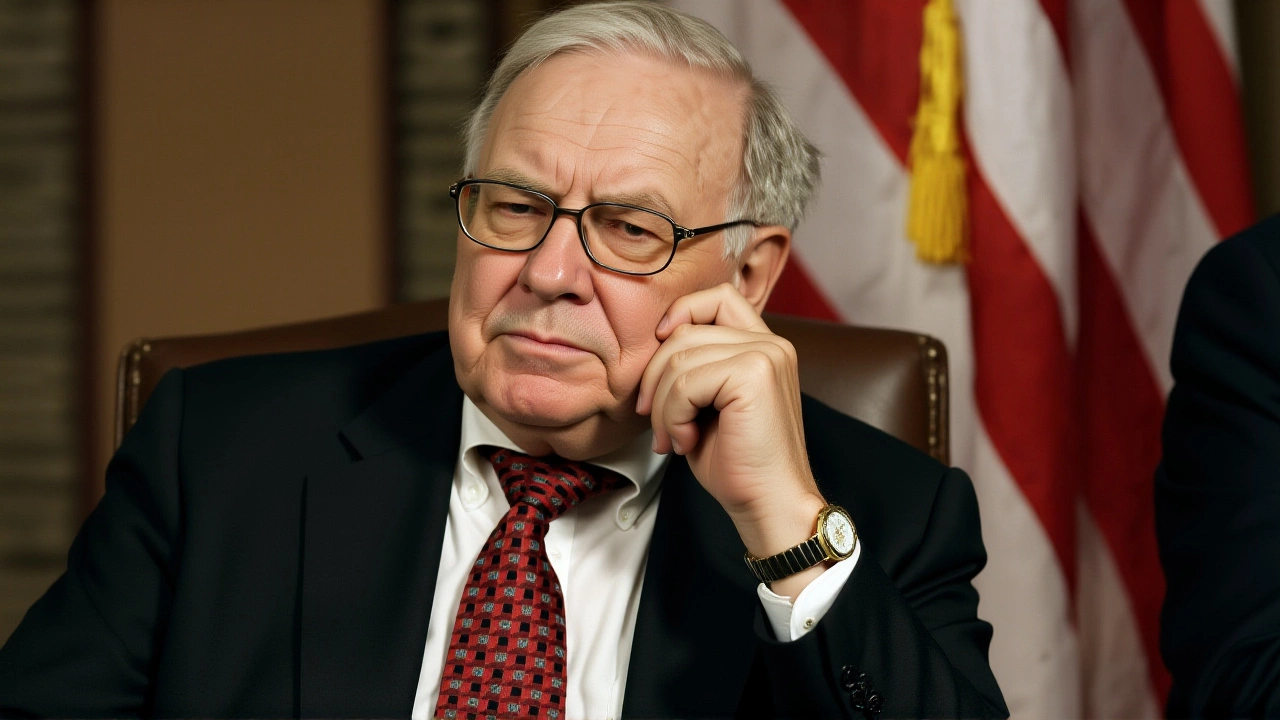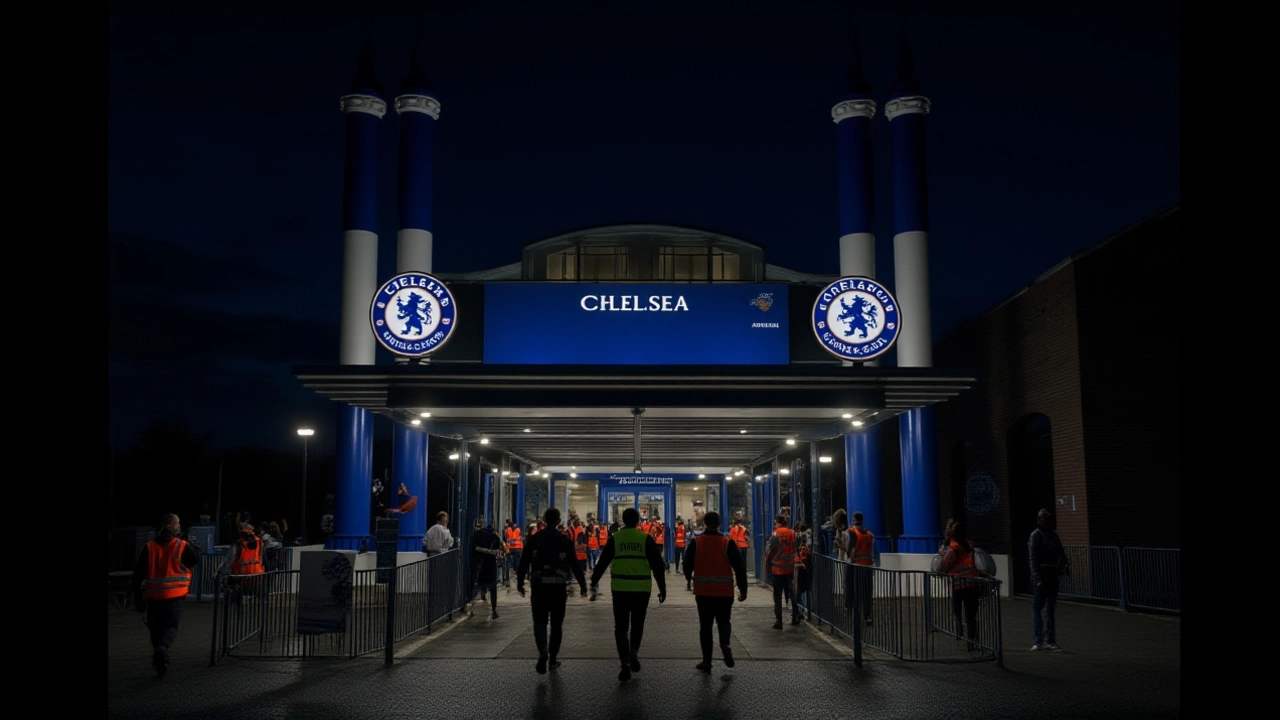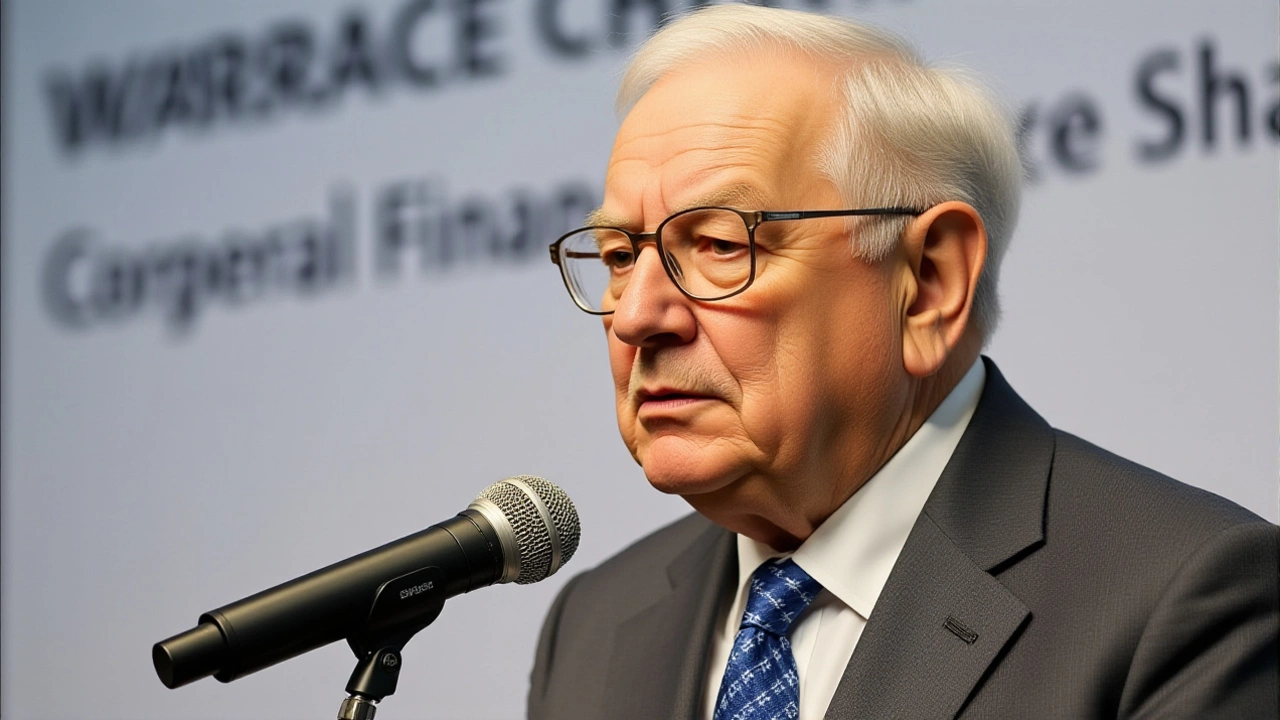When Warren Buffett started selling off billions in Apple and Bank of America stock in late November 2025, the market didn’t panic—it paused. The 94-year-old Berkshire Hathaway CEO, who’s spent seven decades mastering the art of patient investing, quietly offloaded $15.5 billion in combined holdings from Apple Inc. and Bank of America Corporation, according to regulatory filings and financial reports confirmed on November 23–24, 2025. The move wasn’t a crash signal. It was a statement. Berkshire’s cash pile, now at a record $203.8 billion, is the largest in its 60-year history. And Buffett, who plans to retire by year’s end, is making sure his successor inherits not just a company, but a fortress.
The Quiet Sell-Off That Shook Markets
The numbers don’t lie. In Q3 2025 alone, Berkshire trimmed its Apple stake by 12.8%, reducing its position from 888 million shares to roughly 775 million. At the same time, it sold nearly $7 billion in Bank of America shares. Together, the two sales netted $15.5 billion. That’s the biggest divestment since 2020—and the first time Buffett’s sold major holdings like this during a bull market since 1998, when he unloaded $2.3 billion in Treasuries ahead of the dot-com bubble. What’s striking isn’t just the size. It’s the timing. The S&P 500 was near all-time highs. Corporate earnings were strong. Yet Buffett walked away. "This isn’t fear," said Berkshire Hathaway’s corporate communications team in a statement. "It’s discipline. We’re not forecasting a crash. We’re refusing to overpay."American Express: The One Holding That Never Changed
While Apple and Bank of America shrank in Berkshire’s portfolio, one name stayed stubbornly constant: American Express Company. As of September 30, 2025, Berkshire held exactly 151.6 million shares—unchanged for 37 years, since Buffett first bought in back in 1988. That stake, valued at $50 billion, makes American Express the conglomerate’s second-largest holding after Apple. And it’s not just sitting there. American Express delivered 19% EPS growth in Q3 2025, up from 17% in Q2, while returning $7.9 billion to shareholders through buybacks and dividends. "Unlike Apple," noted Jeremy Bogliolo, financial analyst at The Motley Fool, "this is a business Buffett understands at his bones. I truly believe, 10 years from now, hindsight will show this as one of Berkshire’s best-performing stocks."Why the Cash Buildup? Three Reasons
Berkshire’s cash-to-total-assets ratio hit 32.1% as of November 20, 2025—up from 28.4% in June 2020. That’s not a mistake. It’s a strategy, and it breaks down into three clear pillars:- Valuation discipline. Berkshire’s price-to-sales ratio stands at 0.7—25% above its decade average. Buffett believes buying back shares at this level would be wasteful.
- Leadership transition. With Greg Abel, 62, set to take over on December 31, 2025, Buffett is ensuring his successor has maximum flexibility. No pressure to deploy capital prematurely.
- Selective opportunity hunting. While selling tech and banking giants, Berkshire quietly added 4.3 million shares in Chubb Limited, the Zurich-based insurer, bringing its total stake to 18.7 million shares. This isn’t a hedge—it’s a targeted bet on stable, high-margin insurance underwriting.

The Successor: Greg Abel and the New Era
Greg Abel isn’t just Buffett’s heir. He’s the architect of Berkshire’s non-insurance empire—overseeing everything from BNSF Railway to Precision Castparts. Born in Alberta, Canada, Abel has spent 30 years inside Berkshire’s walls, earning Buffett’s trust through quiet competence. Unlike Buffett, Abel doesn’t give public interviews often. But insiders say he’s even more rigorous about capital allocation. His mantra: "Don’t buy what you don’t understand. And never pay more than it’s worth." Buffett’s final shareholder letter in 2025, released in February, made this clear: "I’ve spent my life waiting for the right pitch. Now, I’m making sure Greg doesn’t swing at bad ones."What This Means for Investors
The market reacted with volatility. The S&P 500’s implied volatility spiked to 18.7% on November 21, 2025—the highest since March 2020. Hedge funds scrambled to interpret the sell-off. Was it a recession signal? A tech bubble warning? The truth is simpler: Buffett is betting that the best opportunities are still ahead, not behind. He’s not selling because he thinks stocks are overvalued. He’s selling because he thinks they’re not cheap enough to justify giving up cash flow. Berkshire’s operating businesses generated $28.7 billion in pre-tax earnings in Q3 2025 across 67 subsidiaries in eight countries. That’s real, tangible cash—enough to fund decades of dividends, acquisitions, or buybacks. But Buffett isn’t rushing. He’s letting the market come to him.
What’s Next?
The next big clue arrives January 31, 2026, when Berkshire files its Q4 2025 13F form. Will Abel keep buying Chubb? Will he start nibbling at undervalued energy or industrial stocks? Or will the cash pile grow even further? One thing’s certain: the era of Buffett’s direct control ends on December 31. The era of Abel’s stewardship begins the next day.Frequently Asked Questions
Why did Warren Buffett sell Apple and Bank of America but keep American Express?
Buffett sold Apple and Bank of America because their valuations had climbed beyond his threshold for value investing—despite their strong fundamentals. American Express, by contrast, has been held for 37 years because Buffett views it as a durable, high-margin business with pricing power and customer loyalty that rarely fluctuates. Its consistent 17–19% EPS growth and shareholder returns make it a "forever stock" in his eyes, unlike tech stocks subject to rapid innovation cycles.
Is Berkshire Hathaway in trouble because it’s holding so much cash?
No. Holding $203.8 billion in cash isn’t a sign of weakness—it’s a strategic advantage. Berkshire’s operating businesses generated nearly $29 billion in pre-tax earnings last quarter alone. The cash provides firepower for future acquisitions, acts as a buffer in downturns, and gives Greg Abel room to act without pressure. Buffett’s record shows he’s best when waiting for the right opportunity, not forcing deals.
What does Greg Abel’s leadership mean for Berkshire’s investment strategy?
Abel is expected to maintain Buffett’s core principles: avoid overpaying, prioritize businesses with enduring competitive advantages, and never sacrifice liquidity for short-term growth. But he may be more willing to invest in infrastructure, energy transition, and international markets—areas Buffett avoided. Abel’s background in utilities and industrial operations suggests a shift toward tangible, asset-heavy businesses over pure tech.
Why did Berkshire buy more Chubb shares while selling Apple and Bank of America?
Chubb Limited offers high-quality insurance underwriting with stable cash flows and low volatility—exactly the kind of business Buffett admires. Unlike Apple, which depends on consumer trends and supply chains, Chubb’s earnings are tied to pricing discipline and risk assessment—skills Berkshire has mastered for decades. The 4.3 million share increase signals Abel’s interest in expanding Berkshire’s insurance footprint, not abandoning its core.
Is this the end of Berkshire’s dominance in the stock market?
Not at all. Berkshire’s market cap remains over $800 billion, and its operating businesses generate more cash than most Fortune 500 companies. Buffett’s sell-off isn’t a retreat—it’s a reset. With Abel taking over and cash reserves at record levels, Berkshire is positioning itself to make its next big move when others are still scrambling. The next decade may belong to Abel, but it’s being built on Buffett’s rules.

Landon Beauregard
Hello, my name is Landon Beauregard, and I am an expert in gambling with a passion for writing about games. Over the years, I've honed my skills in various casino games and developed a keen understanding of the strategies and intricacies involved. I enjoy sharing my knowledge with others by writing informative and engaging articles on the latest gaming trends and techniques. I believe that my expertise in gambling, combined with my love for writing, allows me to provide my readers with a unique and valuable perspective on the world of gaming.